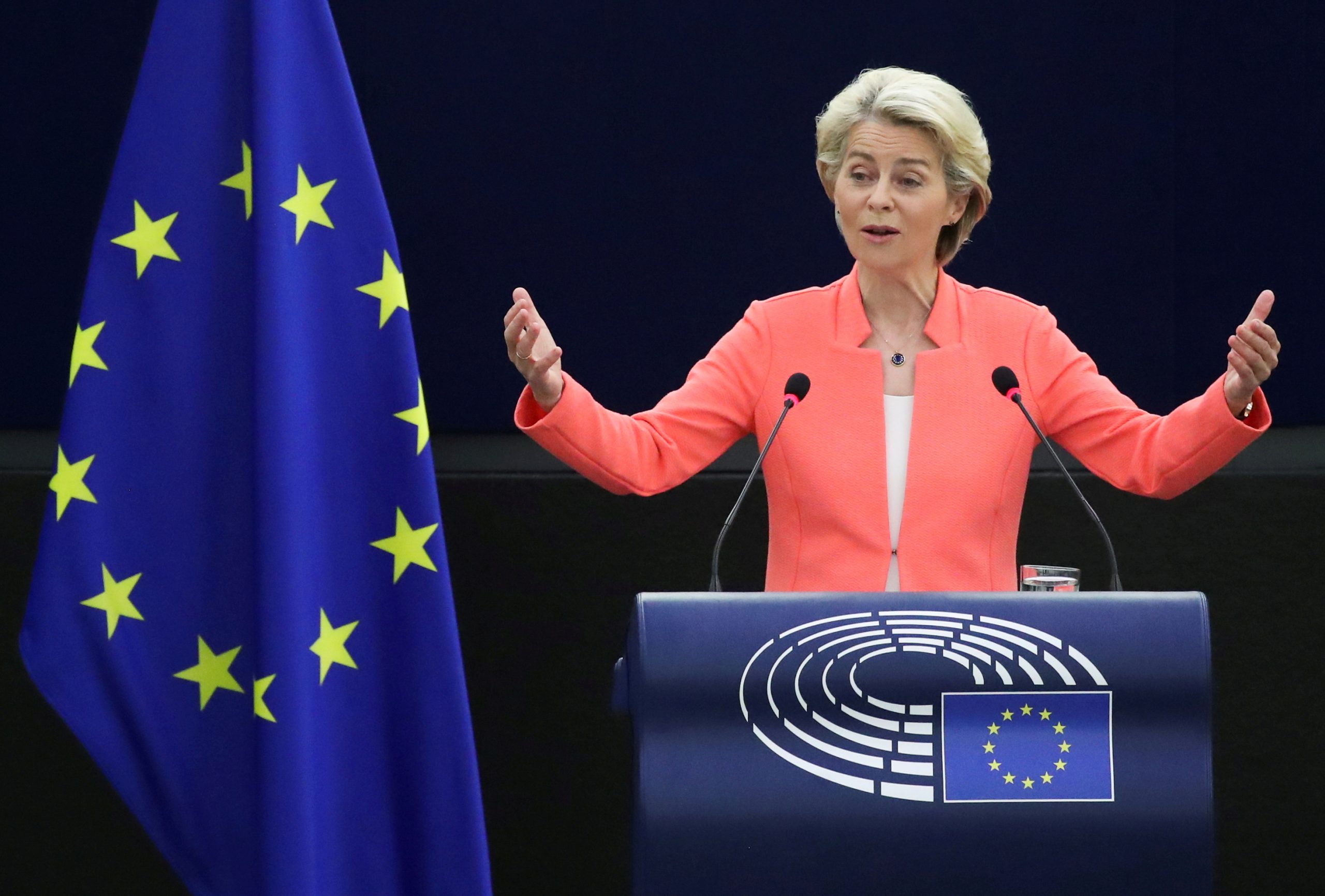
[elfsight_social_share_buttons id=”1″]
Germany joined France on Tuesday in berating the United States for negotiating a security pact in secret with Australia and Britain that cost Paris a lucrative defense deal, while the EU’s top official said such behavior was unacceptable.
In a concrete signal of the bloc’s outrage, EU ambassadors postponed preparations for an inaugural trade and technology council on Sept. 29 with the United States, a gathering that was trumpeted as a major advance in the transatlantic alliance.
“One of our member states has been treated in a way that is not acceptable, so we need to know what happened and why,” European Commission President Ursula von der Leyen said in defense of France.
Her EU executive asked for preparatory EU discussions for the U.S. trade and technology council to be taken off Wednesday’s agenda, EU diplomats said.
A spokesperson said the Commission was still determining whether the U.S. meeting should go ahead as planned.
France said it was assessing all options in response to Australia’s scrapping of a $40 billion submarine contract last week, while its biggest EU ally, Germany, rallied behind it, saying Washington and Canberra had damaged trust between allies that would be difficult to rebuild.
German European affairs minister Michael Roth said the EU needed to overcome its differences and speak with one voice.
“We all need to sit down at a table; lost trust has to be rebuilt – and this will obviously not be easy. But we want to make a constructive contribution,” he told reporters before a meeting with his counterparts in Brussels.
Lithuania’s deputy European affairs minister Arnoldas Pranckevicius referred to a “transatlantic mistrust” that needed to be resolved.
The dispute follows what NATO’s European allies say was Washington’s failure to communicate and consult during the chaotic Western withdrawal from Afghanistan.
Australia says the United States’ offer of access to U.S. nuclear technology to build nuclear-propelled submarines was too good to refuse. It will be only the second country after Britain in 1958 to be given such technology that allows Canberra to help Washington prevent China from gaining military supremacy.
Australia said it would cancel its order for submarines from France, which were conventional, diesel-electric powered, and would instead turn to U.S. and British technology under a new security partnership named AUKUS.
Britain is also looking for a global role after its decision to leave the EU.
BREXIT, AUSTRALIA TRADE TALKS
French Foreign Minister Jean-Yves Le Drian said he wanted to know why his country, which has a strong military presence in the Indo-Pacific, was left completely in the dark. The EU’s top diplomat was also not consulted.
The spat has put in doubt free-trade talks between the EU, the world’s biggest trading bloc, and Australia. They are currently under negotiation and the next round is due in October. It is not clear if they will go ahead.
French European affairs minister Clement Beaune described relations with Australia now as “very difficult”.
“We cannot act as if nothing happened. We need to look into all options,” he told reporters in Brussels.
EU foreign ministers, meeting in New York, also expressed solidarity with France.
Beaune welcomed the EU support, stressing that this was a European matter, not just a French problem, and the bloc should be more assertive in defending its interests, although it was unclear what steps the bloc could take quickly.
Beaune said this marked a further erosion of trust in Britain post-Brexit. Britain, he said, was also not properly applying the fisheries part of the EU-UK trade deal or the protocol governing the trading position of Northern Ireland.
“You cannot say that you will uphold the things that suit you and drop those that do not suit the British. So trust, consistency, respect of accords are, I think, essential,” he said.
(Reporting by Philip Blenkinsop, Marine Strauss, Robin Emmott and Sabine Siebold; Editing by Giles Elgood, Nick Macfie and Edmund Blair)
Copyright 2021 Thomson/Reuters
